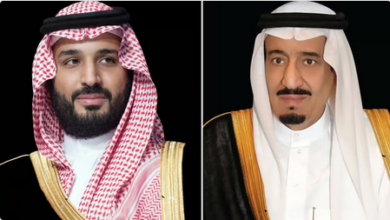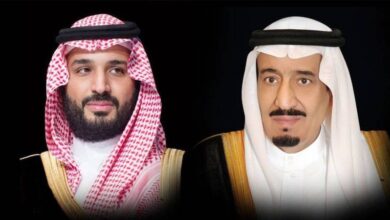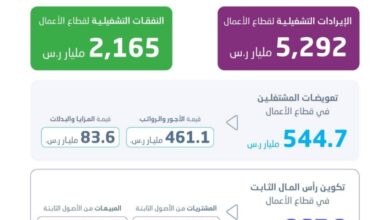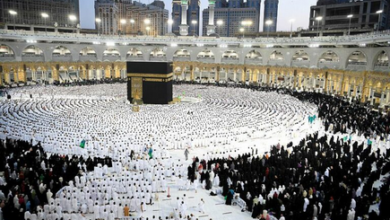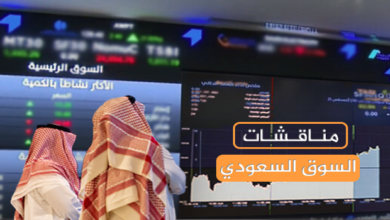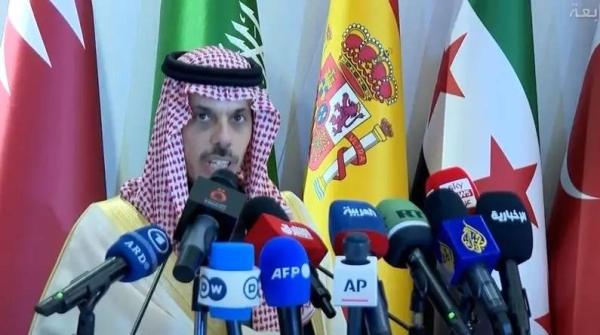
RIYADH — Saudi Foreign Minister Prince Faisal bin Farhan emphasized the importance of lifting sanctions that are imposed on Syria. “Continuing sanctions will hinder the aspirations of the Syrian people to achieve development,” he said in a press briefing at the end of the Riyadh meetings on Syria on Sunday. The meetings discussed the latest developments in Syria and ways to support the Syrian people.
Prince Faisal emphasized that Syria should no longer be treated as a source of threats in the region. The Saudi capital hosted top Arab, European and international diplomats to address the situation in Syria after the fall of Bashar al-Assad regime. Sunday’s conference, the first such meeting of Western and regional leaders hosted by regional heavyweight Saudi Arabia since Assad’s ouster, comes as Damascus urges the West to lift sanctions to help international funding flow to Damascus more freely.
Prince Faisal bin Farhan chaired the meetings. The discussions in the meetings were divided into two parts, the first with the participation of Arab ministers, and the other with Western officials.
Prince Faisal stated that the attendees at the meeting agreed that continuing sanctions will hinder the aspirations of the Syrian people. “Unilateral and international sanctions against Syria should be lifted as keeping them in place will obstruct the brotherly Syria people’s ambitions to achieve development,” he said.
He said that addressing any challenges or sources of concern is through dialogue, providing support and advice, in a manner that respects Syria’s independence and sovereignty, taking into account that its future is a Syrian affair, and is shaped by the Syrians.
The Saudi minister said the participants in the Riyadh meetings on Syria welcomed the positive steps taken by the new administration in Damascus to preserve state institutions, adopt a dialogue approach with the Syrian parties, and its commitment to combating terrorism, and starting a political process that includes various components of the people. “This is in a manner that ensures the stability of the country, the sovereignty and unity of its territories, and that it is not a source of threat to neighboring countries,” he said.
The Saudi minister said that the Riyadh meetings on Syria confirmed that that the future of Syria is the concern of the Syrians themselves, and as such the Syrian issue is being discussed with the participation of the Syrians. These meetings stressed the priority of preserving the institutions of the Syrian state.
Prince Faisal explained that the meetings stressed the importance of continuing to provide humanitarian and economic support, and the necessity of building Syrian national capacities to achieve stability and reconstruction, and create an appropriate environment for the return of refugees, and preserve state institutions, and enable them to play their role towards the people.
Prince Faisal welcomed the importance of the positive steps taken by the new Syrian Administration in the field of preserving the institutions of the state and its adoption of an approach of dialogue with the Syrian parties and its commitment to combating terrorism and starting a political process that includes various components of Syria.
The expanded meeting of foreign ministers of Arab countries held in Riyadh with the participation of Turkish Foreign Minister Hakan Fidan, as part of a step that would enhance Arab support for the Syrian people.
European foreign ministers will meet at the end of January to discuss the lifting of sanctions on Syria, Kaja Kallas, the EU foreign policy chief said on Sunday ahead of the meetings in Riyadh. Kallas said the foreign ministers would convene in Brussels on Jan. 27 in an effort to decide how the 27-nation bloc would relax sanctions on Syria. “Any European decision to ease sanctions would be conditional on the new Syrian administration’s approach to governing, which must include “different groups” and women and “no radicalization. If we see the developments going to the right direction, we are ready to do the next steps…If we see that it’s not going to the right direction, then we can also move back on this,”Kallas added.

